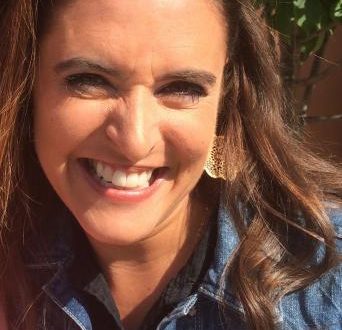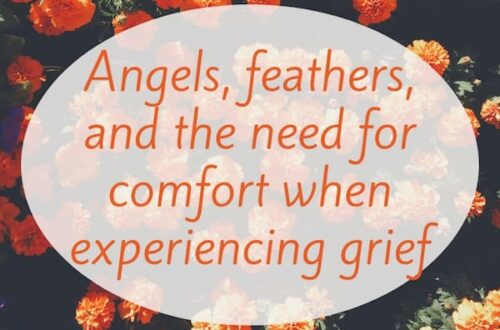The Unbiblical-ness of “Biblical” Dating
Valentine’s Day makes me giddy, not because I expect a bouquet, but because I relish demonstrations of affection. My heart is gladdened every time I see a couple cuddling in a corner booth or read of Mr. Darcy fumbling for words with Lizzy Bennett. I am a romantic. But, understanding and admitting that has been hard. Validating my desire for romantic love (a presumably feminine trait) without dismantling my dreams of leading (a presumably masculine one) has been hard as hell. Sadly, Christian culture increased my agony. Rather than helping, family-centric churches and marriage-centric families lectured me on “biblical dating.” Perhaps you’ve been schooled, too…
Always kiss the person to confirm your chemistry.
Never kiss anyone before getting married.
Only date if you’re ready for marriage.
Date lotsa people, then get married.
Never date longer than a year.
Date for at least a year.
Only date one-on-one.
Only date in groups.
Confusing, right? Welcome to biblical dating, the caramel-coated legalism that enforces a set of hard-and-fast rules nowhere to be found in Scripture. To make things stickier, biblical dating supports a certain view of gender roles that requires men to initiate everything and women to wait and only date men who financially provide and spiritually lead.
But, I already have a provider: God the Father. And I already have a spiritual leader: Jesus, my Savior. What I don’t have is a safe context for meeting and establishing relationship with singles of the opposite sex. What I don’t have is a context that allows me to determine if my desire for romantic love might include marriage. That is what dating should provide.
Today I want to expose the unbiblical-ness of biblical dating, mainly the insecurity and pride it tends to perpetuate. And I want to encourage those struggling with the messiness of singleness. Let’s get going.
Biblical dating can perpetuate insecurity.
Two generations, Gen-Xers and Millennials, grew up during several major booms: divorce, MTV, technology, and social media. No wonder there are so many fears of marriage and skewed views of dating! And biblical dating does not pastor people through these or any issues; it merely accentuates them. Biblical dating does not mend brokenness; it merely intensifies it, keeping people second-guessing and self-obsessing.
Following the rulebook prompted my dissections of every potential explanation of why a guy didn't ask me out: I should’ve been wittier, quieter, skinnier, smarter. He should’ve been manlier, bolder, initiator. And if I did go on a date, especially one that went well, I over-analyzed why he never called me back. I ran through the mental checklist of biblical dating rules, assigning blame for the epic fail: he should’ve paid, I should’ve been less straightforward, less…myself. He should’ve blessed the meal. I should’ve asked him to. Perhaps most tragically, I convinced myself to make it work with guys just because they "pursued."
As believers come to know the Healer and his healing, we begin to experience increasing spiritual, mental, and emotional wholeness. The ways we interact with others becomes healthier. We have an increased capacity for genuineness and graciousness, and a willingness to create the space for others to do the same. There’s nothing more biblical than that.
Biblical dating can promote pride.
Meeting new people and enjoying new experiences can be exhilarating or downright disastrous. Either way, Christians follow the example of Christ who teaches us to embrace the beauty of people with various backgrounds, ideas, and interests. Christ calls us to embrace the humility of sacrificing for and serving others, even regarding something as simple as asking them to share rather than rattling off our own glory stories. And, Christ encourages us to embrace the humanity that dating exposes, even areas of selfishness or arrogance, and use them as opportunities to learn and grow. You see, dating is more than a precursor to marriage, it is also a learning experience that allows us to discover who and where another person is. Monitoring our responses allows us to discover more of who and where we are. There’s nothing more biblical than that.
By contrast, biblical dating keeps singles hell-bent on solving dating riddles themselves. Rather than relying on the Holy Spirit to guide and guard them, biblical daters rely on rules and gender roles for their cues. “Men must always initiate; women only respond,” they say. And rather than simply applying basic biblical wisdom and utilizing various dating formats, biblical daters remain averse to all things remotely unique. “Online dating is disgraceful; group dating is distasteful,” they claim.
Whether we are actively dating or not, God wants to be with us in the messiness and awkwardness of singleness. Whether we cuddle, fumble, or stumble, God delights in using us as demonstrations of his affection. Just let him draw near. Share your nervous expectations and hidden fears. Listen as he reveals more of who and where he is. You’ll discover more of who and where you are. There’s nothing more biblical than that.
Even still, as marvelous as the intimacy is, many of us desire to love and be loved romantically, physically. We’re still embodied. We weep over the unfulfilled desires as they sit like grounded ships on a shore. We grieve the lost cargo they carry: companionship, children, laughter, security, sex. Biblical dating lacks a category for this. Why? Because in these moments it is our humanity, not depravity, that causes our agony. And it is our God, not rules and restriction, that provides the answer. When God breaks through, he floods our souls with a tidal wave of his love. Our desires still exist, they just get swept up and carried out into the immeasurable deep: a greater desire for the person and purposes of God. There’s nothing more biblical than that.



